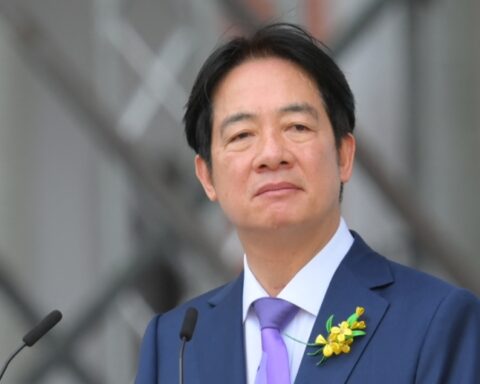NEW DELHI (Parliament Politics Magazine) – In a heated exchange of words sparked by a Chinese military ship docking in a contentious Sri Lankan port, India has accused China of “militarising the Taiwan Strait”.
The accusation, which the Indian high commission in Sri Lanka referred to in a statement on Sunday, supposedly is the first time the government of India has used the descriptor, and it represents an uncommon intervention from India on the cross-straits matter as it deals with tensions with China along its own border.
A Chinese military research vessel had a weeklong docking at the Hambantota port in Sri Lanka earlier this month. The Yuan Wang 5 is one of several Chinese ships used by the People’s Liberation Army to track satellite, intercontinental ballistic missile launches and rockets, analysts say.
India objected to the docking of the Yuan Wang 5, raising concerns that Beijing intended to use the port as a military base, which caused a delay of several days. China’s foreign affairs ministry stated that maritime research in accordance with international law was being conducted by the vessel and would not jeopardise the economic interests and security of any country.
The Yuan Wang 5 had left a week ago, but over the weekend, the Chinese embassy in Sri Lanka raised accusations against India of using concerns regarding security to conduct de facto by interfering with the independence and sovereignty of Sri Lanka..
Sri Lanka was in need of help, not unwelcome pressure or unnecessary controversies to suit the objective of another country, the Indian high commission in Colombo stated on Saturday. Additionally, it made reference to debt-driven objectives, possibly in reference to the Hambantota port, which was funded by China and is frequently linked to claims of Chinese debt-trap diplomacy.
Sri Lanka is balancing the opposing powers of India and China, both of which analysts claim it needs while navigating its way out of the worst-ever economic crisis. About 10% of the country’s overall foreign debt is made up of Chinese loans. However, India has also given Sri Lanka a $3.8 billion loan since this year to help it overcome its economic difficulties.
Wen-ti Sung, a political scientist at the Australian National University who specialises in Taiwan and China, claimed Delhi was developing “new bargaining leverage” by normalising “tougher rhetoric” that it could then offer to stop using in future negotiations when accusing China of “militarising” the Taiwan Strait.
Sung noted China’s domestic challenges with the next 20th party congress, when President Xi Jinping will look for a third term, and noted that India was attempting to build new leverage where none previously existed by calling China out on Taiwan when it knew that China was not looking for an escalation of many aspects.
The ship arrived in Hambantota about one week after China finished its extensive military exercises around Taiwan in reaction to Nancy Pelosi’s visit. China’s military has continued to engage in increasing activity since those drills concluded, which analysts have dubbed a worrying “new normal.” The media line, an unofficial border that divides the Taiwan Strait but which has been recently claimed as sovereign waters by China, is now almost daily crossed.
The Indian government stayed with evasive statements at the time, claiming it was “concerned by recent developments” while the US and other allies denounced the drills.
An foreign affairs spokesperson said they urge exercising restraint, avoiding unilateral moves to disrupt the status quo, de-escalating tensions and attempting to maintain peace and stability in the region.






